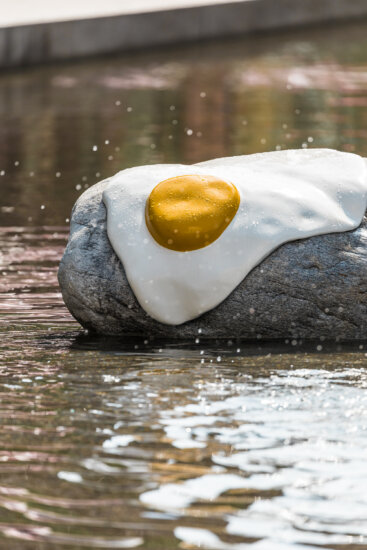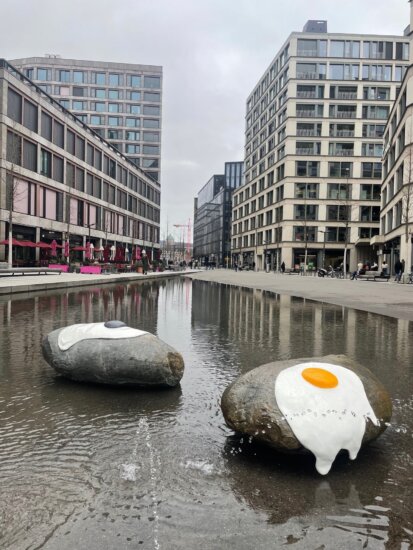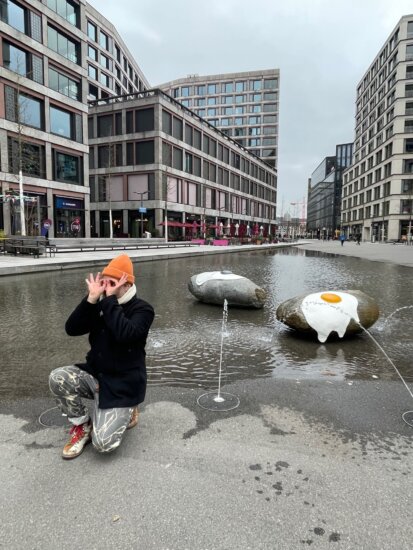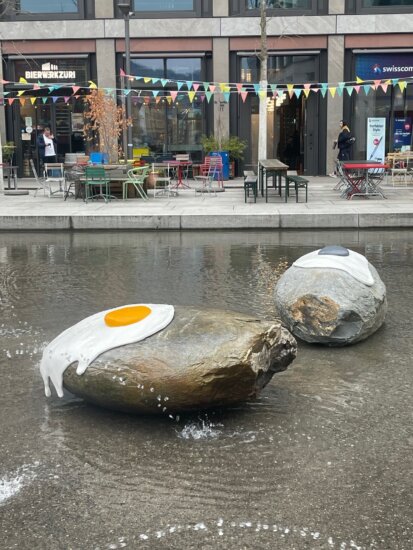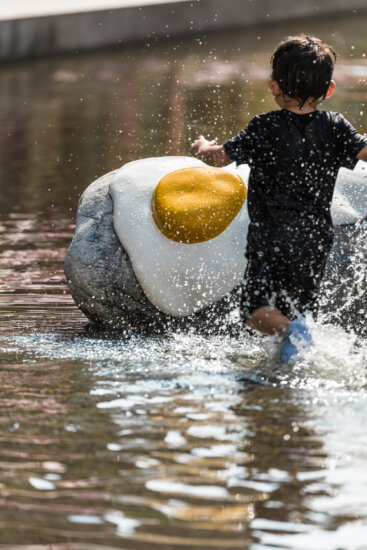Pedro Wirz – «Trilobites»
March 15th – December 31st, 2025
Pedro Wirz’s artistic practice is deeply shaped by his biography. Growing up in rural Brazil, the son of a biologist and an agronomist, he developed a profound connection to nature, plants, and living organisms — but also to the processes of commodification that come with their commercial exploitation. His Swiss-born parents conducted research at the intersection of civilization and nature, studying compost, frogs, and bees. Witnessing firsthand the fragility of nature and the destruction of the rainforest, Wirz translated these experiences into a compelling artistic practice, which will now be experienced for the first time in Zurich’s public space.
Now based in Zurich, the sculptor works with unconventional materials, such as potting soil from hardware stores, roots from the forest, and textiles sourced from second-hand shops. The egg, a recurring motif, holds a central place in Wirz’s artistic universe. For his installation at Europaallee — fried eggs seemingly sizzling on erratic boulders — Wirz employs traditional sculptural materials such as stone and bronze. The fusion of form, material, and meaning, according to the artist, serves as «an allegory of the instrumentalization of nature by human society.» The title, referencing long-extinct marine creatures, underscores the ephemerality of existence.
Pedro Wirz (*1981 in Pindamonhangaba, Brazil) is one of the most significant artists of his generation. His works have been presented internationally in numerous solo and group exhibitions. His solo exhibitions include PHILIPPZOLLINGER in Zurich (2024), Nagel Draxler in Cologne (2023), Kunsthalle Basel (2022), and Marc Selwyn Fine Art in Los Angeles (2020). His group exhibitions featured presentations at the Centre d’Art Contemporain Genève (2023), Aargauer Kunsthaus (2019), and the Tinguely Museum in Basel (2016). In 2023, Pedro Wirz was awarded the Bally Artist Award. He is represented by Nagel Draxler (Berlin, Cologne, Munich) and PhilippZollinger (Zurich).
